
In Focus
Mahendra Upadhyay, CIO
Broadcast Audience Research Council
We are skilled at using AI for analyzing troves of data efficiently
BARC India is a statistical and measurement science company which is ‘Of the Industry, By the Industry and For the Industry’.
The company is registered with the Ministry of Information & Broadcasting (MIB) as a self-regulated, not-for-profit Joint Industry Body that provides the most authentic audience estimates of What India Watches, to Broadcasters, Advertisers and Advertising Agencies. The Big Data driven insights generated by BARC India, is built upon a robust and future-ready technology backbone which powers efficient media spends and content decisions in a highly dynamic and growing broadcasting sector.
Commencing operations in 2015, today BARC India manages the world’s largest and most diverse TV measurement system covering approximately187000 individuals in 44,000 households, in 513 districts covering over 600 towns and 1300 villages, across India.
Jatinder Singh of Better World recently interacted with Mahendra K Upadhyay, Chief Information Officer (CIO) at Broadcast Audience Research Council (BARC) India to get in-depth understanding of how BARC has leveraged technologies such as AI, machine learning (ML) and robotics to analyze, predict and process various metrics for driving effective business and customer experience. Excerpts of the interview:
Better World: How have you leveraged the latest technologies and innovations to strengthen credibility, transparency and instill confidence in all stakeholders in the TRP measurement system?
Mahendra K Upadhyay: Our data serves as the trusted “currency” for the Indian broadcast industry. Through this “currency,” broadcasters and agencies make several vital decisions relating to programming, strategy, and audience targeting. Providing the data in usable forms in an unfailing and timely fashion, week on week is highly dependent on technology.
Collecting data from over 44,000 household television meters and 15,000+ individuals’ digital meters daily while integrating with massive databases and alternative data sources requires the data to be stored safely, scalably, efficiently, accessible, and cost-effectively. The kind of data BARC India collects, compiles, and provides insights for is a brilliant example of the 5Vs of big data – Volume, Velocity, Variety, Veracity, and Value. BARC India processes ten petabytes of data annually, larger than the Aadhar Card database’s data size and the US Census Bureau.
With this large and variable data, extensive use of the latest in Artificial Intelligence (AI) and Machine Learning (ML) technologies is required to minimize human intervention and extract and represent the information accurately as per the prescribed methodology.
We have set a strict standard for releasing our clients’ data, doing so diligently every Thursday at 11 am. Performance, improvements, quality, and consistency are few parameters we experience and implement each passing day – without a firm Information and technology framework, this would not be possible.
Besides, we have deployed and enriched Lambda (λ) architecture that utilizes cloud services (Native & Custom) and on-premises data center capacities. An in-house created Enterprise Data Lake (EDL) helps end-to-end Data Validation Processes (DVP), fully automated, removing any human intervention. In addition to this, the application framework learns system patterns to help us identify areas for improvement.
Better World: Can you please elaborate more on AI and ML technologies to strengthen business resiliency levels and navigate the disruptions?
Mahendra K Upadhyay: At BARC India, rather than serving as a replacement for human intelligence and ingenuity, we use AI as a supporting tool. We are skilled at processing and analyzing troves of data efficiently to generate the insights needed by our clients. This way, we use AI to help get the best-required output and streamline the decision-making process.
BARC India has eliminated human intervention end-to-end in the data validation journey. All admin access on the system and the data is via Identity and Access Management and activity recording.
We prefer networks rather than hierarchies. BARC India has created cross-technology groups to share knowledge. To ensure that our systems/networks and applications are robust and mitigate process lapses, we regularly undertake third-party audits.
To generate authentic and accurate data of ‘What India Watches™’ is a responsibility we take with the highest sense of commitment and integrity. Also, we are implementing Robotic Process Automation (RPA) to do the daily repetitive operational jobs, not only in the Tech stream, but we are experimenting with it across the organization.
Better World: How do you prevent data tampering in your business?
Mahendra K Upadhyay: To generate authentic and accurate data of ‘What India Watches™’ is a responsibility we take with the highest sense of commitment and integrity.
Mahendra K Upadhyay, CIO, BARC India
Mahendra Upadhyay is a senior management professional in digital, data and technology space; presently working with BARC India as Chief Information Officer. Mahendra comes with 20 years of rich experience in telecom, banking, retail, media, and advertising industries with expertise in the entire data/digital value chain, i.e., ingestion-insights-analytics-interventions-auto AI and digital transformation.
Mahendra Upadhyay has previously worked with multinationals such as Mindshare, Ericsson, SAS Institute, among others.
Expertise
- Digital transformation and automation
- Digital marketing, marketing automation and measurement
- Consumer Insights, interventions and advance analytics
- Big data analytics, business intelligence (AI/ML)
- Data/process management, security and governance
- Large scale program management
Education
- Executive Management, Business Administration and Management, General, Harvard business publishing, 2018
- MBA, Business Management, Institute of Technology and Management, 2011
- MCA, Rajiv Gandhi Prodyogiki Vishwavidyalaya, 2001
To ensure that we have deployed enterprise-level security architecture with robust perimeter and access control measures with the entire data path, from source to delivery, being end-to-end encrypted and monitored while maintaining vigilance through privilege identity management.
To ensure that endpoint security controls are in place, we’ve implemented Mobile Device Management (MDM) on the devices used/accessed by employees and the field force for data collection.
Over a Virtual Private Network (VPN), a single sign-in option for all corporate applications (on-premises, SaaS, IaaS) and Privilege Identity Management (PIM) based access methods ensure we have control over the actions being taken at every logging. Further to this, we have network/user-level access controls for information to ensure it never crosses the BARC boundaries.
We have multi-layer firewalls and encryption methods; most importantly, we ensure that our data resides within India for effective law enforcement. Excellence is continuous. We do audits/checks of our IT systems and general control policies periodically to ensure we have updated protocols in place to resolve digital/cybersecurity-related challenges effectively.
Better World: How have you navigated the transition to remote work during the COVID-19 pandemic?
Mahendra K Upadhyay: BARC India drafted a comprehensive work-from-home (WFH) framework for its internal and external users by focusing on its key pillars: Communication, Collaboration, and Checks (security, integrity, and authority).
Secure processes and information flow are keys for success, so ‘Checks’ are critical to ensure their integrity. We have implemented two additional security layers and encryption protocols to ensure information is secure and applications function smoothly in the new normal environment of WFH.
Better World: What, according to you, are the key technology trends that will likely have the most significant impact on the enterprise ecosystem in the post-COVID environment?
Mahendra K Upadhyay: The FOUR key trends I see are:
- ‘Security Frameworks’ for securing information, application, networks, and end-users.
- ‘Robotic Process Automation’ for 100% uptime and optimum process utilization.
- Data-driven use cases and auto-discovery/treatments using advanced AI.
- Edge computing.
Finally, while technology and innovations can help, it’s ultimately human intelligence that makes the outcome business-friendly. This requires continuous investment, not only in tech but also in PEOPLE.


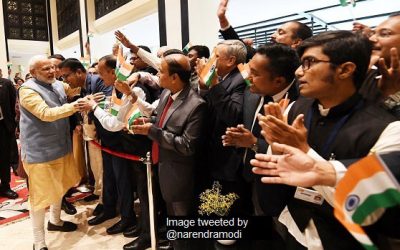
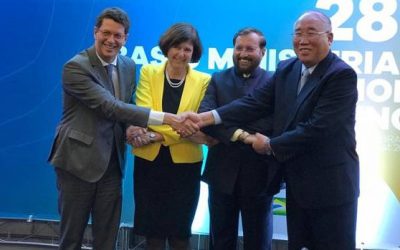
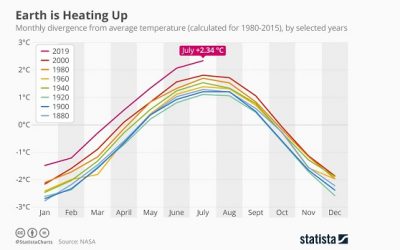

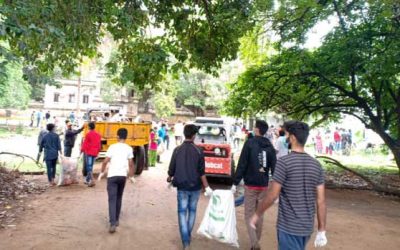
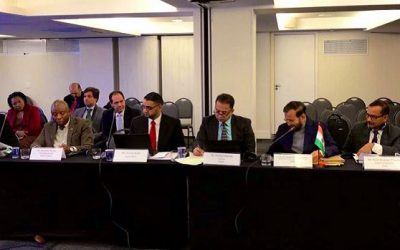

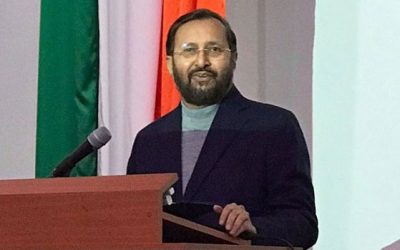
0 Comments